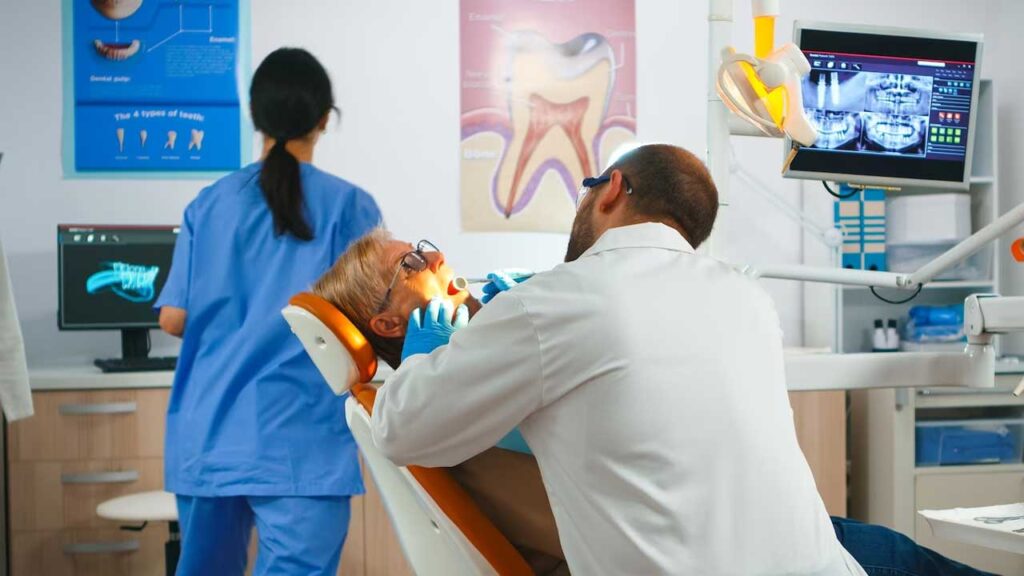Mouthwash is a liquid product that you swish around your mouth to improve your oral hygiene and health. It can help you remove plaque, prevent cavities, fight gum disease, freshen your breath, and more. But not all mouthwashes are created equal. Some contain harsh chemicals that can irritate your mouth or disrupt your natural oral flora. That’s why some people prefer natural mouthwash, which is made from natural ingredients that are gentle and effective.
But what is natural mouthwash exactly? How does it work? And is it really better than conventional mouthwash? In this article, we will answer these questions and more. We will explore the science behind natural mouthwash and its effectiveness in killing bacteria and improving your oral health. We will also look at the different types of natural mouthwash available, how to use them, and the benefits and risks associated with them.

What Is Natural Mouthwash?
Natural mouthwash is a type of mouthwash that is made from natural ingredients, such as herbs, spices, oils, extracts, or salts. These ingredients have antibacterial, anti-inflammatory, antiseptic, or antioxidant properties that can help you maintain a healthy and balanced oral environment.
Natural mouthwash does not contain any artificial colors, flavors, sweeteners, preservatives, or alcohol. These additives can cause dryness, irritation, or allergic reactions in some people. They can also kill both good and bad bacteria in your mouth, which can disrupt your oral microbiome and lead to other problems.
Natural mouthwash is usually gentler and safer than conventional mouthwash. It can also provide additional benefits for your oral health, such as:
Reducing plaque and tartar.
Plaque is a sticky film of bacteria that forms on your teeth every day. If you don’t brush and floss regularly, plaque can harden into tartar, which is more difficult to remove. Tartar can cause inflammation, bleeding, and receding gums. It can also damage the bone and ligaments that hold your teeth in place. Natural mouthwash can help you remove plaque and prevent tartar formation by inhibiting bacterial growth and adhesion.
Preventing cavities.
Cavities are holes in your teeth that are caused by tooth decay. Tooth decay occurs when bacteria in your mouth produce acids that erode your enamel, the hard outer layer of your teeth. Enamel protects your teeth from sensitivity, infection, and pain. Once enamel is damaged, it cannot be repaired by your body. Natural mouthwash can help you prevent cavities by neutralizing acids and remineralizing your enamel with minerals like calcium and phosphate.
Fighting gum disease.
Gum disease is an infection of the tissues that support your teeth. It is caused by plaque and tartar buildup along the gum line. Gum disease can cause redness, swelling, bleeding, pain, and bad breath. It can also lead to tooth loss if left untreated. Natural mouthwash can help you fight gum disease by reducing inflammation, killing bacteria, and healing wounds.
Freshening breath.
Bad breath or halitosis is a common problem that affects many people. It can be caused by various factors, such as poor oral hygiene, food particles, dry mouth, smoking, or medical conditions. Bad breath can make you feel embarrassed or self-conscious in social situations. Natural mouthwash can help you freshen your breath by eliminating odor-causing bacteria and volatile sulfur compounds (VSCs). It can also give you a pleasant taste and smell with natural flavors like mint, cinnamon, or clove.
What Are the Types of Natural Mouthwash?
There are different types of natural mouthwash that you can choose from, depending on your preference and needs. Some of the most common types are:
Herbal mouthwash.
Herbal mouthwash is made from various herbs that have medicinal properties for your oral health. Some of the most popular herbs used in herbal mouthwash are:
- Aloe vera. Aloe vera is a succulent plant that has anti-inflammatory, antibacterial, and healing effects. It can help soothe and heal irritated or inflamed gums, reduce plaque and tartar, and prevent cavities and gum disease.
- Chamomile. Chamomile is a flowering plant that has anti-inflammatory, antiseptic, and soothing effects. It can help reduce swelling and bleeding of the gums, fight bacterial infections, and relieve pain and discomfort.
- Echinacea. Echinacea is a flowering plant that has immune-boosting, antibacterial, and antiviral effects. It can help strengthen your body’s natural defense against oral pathogens, prevent or treat cold sores, and speed up wound healing.
- Green tea. Green tea is a type of tea that has antioxidant, anti-inflammatory, and antibacterial effects. It can help scavenge free radicals that damage your cells, reduce inflammation and bleeding of the gums, inhibit bacterial growth and acid production, and prevent cavities and gum disease.
- Peppermint. Peppermint is a herb that has antimicrobial, antiseptic, and refreshing effects. It can help kill germs that cause bad breath, plaque, and cavities, disinfect your mouth, and give you a cool and minty sensation.
Oil pulling.
Oil pulling is an ancient Ayurvedic practice that involves swishing oil in your mouth for 10 to 20 minutes every day. The oil acts as a natural cleanser that draws out toxins and bacteria from your mouth and improves your oral health. Some of the benefits of oil pulling are:
- Whitening your teeth. Oil pulling can help remove stains and discoloration from your teeth by breaking down the plaque and tartar that cause them.
- Reducing inflammation and bleeding of the gums. Oil pulling can help reduce the inflammation and bleeding of the gums caused by plaque and tartar buildup along the gum line.
- Preventing cavities and gum disease. Oil pulling can help prevent cavities and gum disease by inhibiting bacterial growth and acid production in your mouth.
- Freshening your breath. Oil pulling can help freshen your breath by eliminating odor-causing bacteria and volatile sulfur compounds (VSCs) from your mouth.
The most commonly used oils for oil pulling are coconut oil, sesame oil, or sunflower oil. These oils have antibacterial, anti-inflammatory, or antioxidant properties that can benefit your oral health.
Salt water rinse.
Salt water rinse is a simple and effective way to improve your oral hygiene and health. Salt water has antiseptic, antibacterial, and healing properties that can help you with various oral issues. Some of the benefits of salt water rinse are:
- Cleaning your mouth. Salt water rinse can help you clean your mouth by flushing out food particles, debris, or bacteria that may be stuck between your teeth or gums.
- Reducing inflammation and pain of the gums. Salt water rinse can help you reduce the inflammation and pain of the gums caused by infections, injuries, or surgeries. Salt water can also help balance the pH level of your mouth and create an unfavorable environment for bacteria to grow.
- Speeding up wound healing. Salt water rinse can help you speed up wound healing by stimulating blood circulation, reducing swelling, and preventing infection. Salt water can also help form a protective layer over the wound and promote tissue regeneration.
To make a salt water rinse, you just need to dissolve half a teaspoon of salt in a cup of warm water and swish it around your mouth for a few seconds.
How to Use Natural Mouthwash?
Using natural mouthwash is similar to using conventional mouthwash, but there are some differences that you need to be aware of. Here are some tips on how to use natural mouthwash effectively and safely:
Choose the right type of natural mouthwash for your needs.
There are different types of natural mouthwash that you can choose from, such as herbal mouthwash, oil pulling, or salt water rinse. Each type has its own benefits and drawbacks, so you need to consider your oral condition, preference, and budget before choosing one. You can also consult your dentist for their recommendation or make your own natural mouthwash at home with simple ingredients.
Follow the instructions carefully.
Each type of natural mouthwash may have different instructions on how to use it, such as how much to use, how long to swish, how often to use, or how to store it. You need to follow the instructions carefully to get the best results and avoid any adverse effects. For example, if you are using oil pulling, you should not swallow the oil or spit it into the sink, as it may contain toxins or clog your pipes. You should spit it into a trash can or a paper towel instead.
Use natural mouthwash as a supplement, not a substitute.
Natural mouthwash can help you improve your oral hygiene and health, but it cannot replace brushing and flossing. You still need to brush your teeth at least twice a day with fluoride toothpaste and a soft-bristled toothbrush. You also need to floss your teeth at least once a day to remove plaque and food particles from between your teeth. Natural mouthwash can be used after brushing and flossing or in between meals to freshen your breath and enhance your oral health.
Monitor your oral health and consult your dentist regularly.
Natural mouthwash can have positive effects on your oral health, but it may also have some limitations or risks. You need to monitor your oral health and watch out for any signs of problems, such as sensitivity, pain, bleeding, infection, or decay. If you notice any changes or issues in your oral health, you should stop using natural mouthwash and consult your dentist as soon as possible. Your dentist can diagnose and treat any existing oral problems and advise you on whether natural mouthwash is suitable for you or not.
By following these tips, you can use natural mouthwash effectively and safely and enjoy its benefits for your oral health.
Natural mouthwash is a type of mouthwash that is made from natural ingredients that are gentle and effective for your oral health. It can help you reduce plaque and tartar, prevent cavities and gum disease, freshen breath, and more.
However, natural mouthwash is not a magic solution that can solve all your oral problems. You still need to brush and floss your teeth regularly and visit your dentist periodically. You also need to choose the right type of natural mouthwash for your needs, follow the instructions carefully, use it as a supplement not a substitute, and monitor your oral health.
By doing these steps, you can make the most of natural mouthwash and its effectiveness in killing bacteria and improving your oral health.

